

 Today we continue our series of interviews with Los Angeles’ front-running mayoral candidates, with the first part of a talk with City Controller Wendy Greuel, who has previously served as an L.A. City Councilmember. (Tomorrow: Wendy Greuel interview, Part Two. See interviews with Eric Garcetti, Part One and Part Two.)
Today we continue our series of interviews with Los Angeles’ front-running mayoral candidates, with the first part of a talk with City Controller Wendy Greuel, who has previously served as an L.A. City Councilmember. (Tomorrow: Wendy Greuel interview, Part Two. See interviews with Eric Garcetti, Part One and Part Two.)
Frying Pan News: If your opponents are capable and honorable people, why are you running for mayor – why not just sit back and let one of them take the office?
Wendy Greuel: I have the unique experiences that none of the other candidates have. I’ve worked for Tom Bradley, one of the greatest mayors we’ve had in Los Angeles. On the federal level I worked with Henry Cisneros at the Department of Housing and Urban Development – not only on national homeless programs but [by] being here after the Northridge earthquake.
» Read more about: Wendy Greuel on Apathy, Big Money and Being a Jobs Tsar »


 Last week the L.A. Bureau of Sanitation released its initial draft implementation plan for moving to an exclusive franchise for businesses and large apartment buildings in the City of Los Angeles. As you recall, at the November vote, the L.A, City Council asked the Bureau to return in 90 days to provide an update on how to implement an exclusive franchise. The product released today demonstrates that the Bureau has taken to heart the resounding message from L.A. City Council that it wants an environmentally forward-thinking plan that protects workers and communities, in addition to stabilizing chaotic waste rates. Even though I have only had a little bit of time to review it, I am very impressed with the initial draft implementation plan.
Last week the L.A. Bureau of Sanitation released its initial draft implementation plan for moving to an exclusive franchise for businesses and large apartment buildings in the City of Los Angeles. As you recall, at the November vote, the L.A, City Council asked the Bureau to return in 90 days to provide an update on how to implement an exclusive franchise. The product released today demonstrates that the Bureau has taken to heart the resounding message from L.A. City Council that it wants an environmentally forward-thinking plan that protects workers and communities, in addition to stabilizing chaotic waste rates. Even though I have only had a little bit of time to review it, I am very impressed with the initial draft implementation plan.
The stakes are high as outlined in the report. A little under 70 percent of the waste L.A. sends to landfills comes from businesses and large apartment buildings.
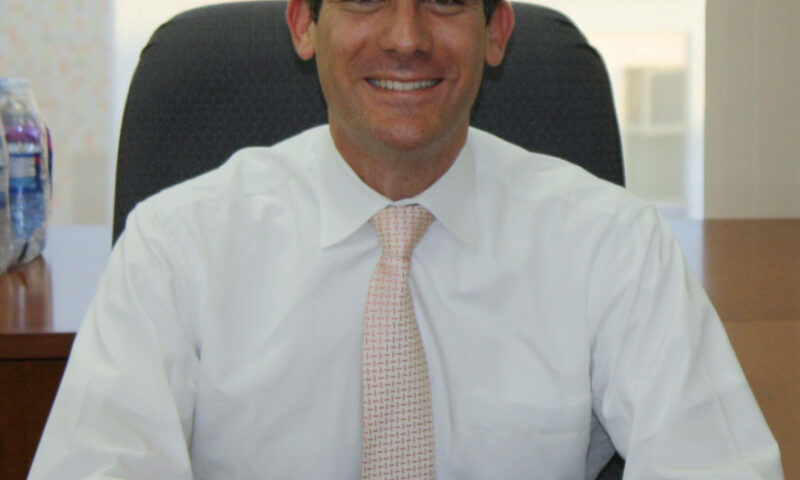

 Frying Pan News continues its series of interviews with the leading mayoral candidates, who will face off in the March 5 primary. Part Two of our interview with City Councilmember Eric Garcetti appears today (click here to read Part One), followed Thursday by a conversation with City Controller Wendy Greuel.
Frying Pan News continues its series of interviews with the leading mayoral candidates, who will face off in the March 5 primary. Part Two of our interview with City Councilmember Eric Garcetti appears today (click here to read Part One), followed Thursday by a conversation with City Controller Wendy Greuel.
Frying Pan News: Many in the business community would prefer the mayor to be a cheerleader for business, but in the last few years we’ve seen what happens when the economy is left to big corporations and financial institutions. How will you balance the interests of the business community and those who are desperately trying to find a path into the middle class?
Eric Garcetti: There’s no question that business is absolutely critical to our economic strength here, and by business it’s not necessarily just the large corporations – we’re talking about the mom and pop store,
» Read more about: Eric Garcetti on Pensions, Privatization and Port Trucking »
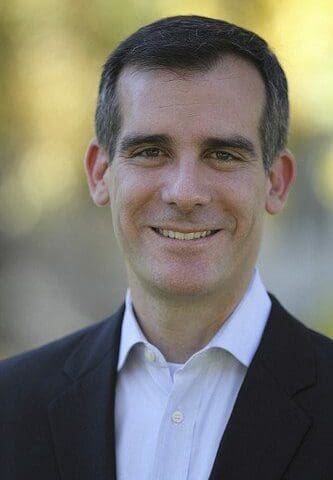

 Today Frying Pan News launches a series of interviews with the leading mayoral candidates, who will face off in the March 5 primary. Beginning with City Councilmember Eric Garcetti, we posed questions about what we think are the most pressing issues our next mayor must confront. Part One of our interview with Garcetti appears today; Part Two will run tomorrow, followed by a conversation with City Controller Wendy Greuel.
Today Frying Pan News launches a series of interviews with the leading mayoral candidates, who will face off in the March 5 primary. Beginning with City Councilmember Eric Garcetti, we posed questions about what we think are the most pressing issues our next mayor must confront. Part One of our interview with Garcetti appears today; Part Two will run tomorrow, followed by a conversation with City Controller Wendy Greuel.
Frying Pan News: A lot of the mayoral debate so far has focused on challenges with the city budget and whether we should cut benefits for city employees. Can you paint your broad vision of how we bring good jobs, clean air and healthy communities to all of Los Angeles?
Eric Garcetti: Our recovery can’t be just about how we are going to cut more, tax more. My greatest fear is that we will have those who will do well no matter how bad things get – the highly educated,
» Read more about: Eric Garcetti on Walmart, Waste and Living Wage Laws »
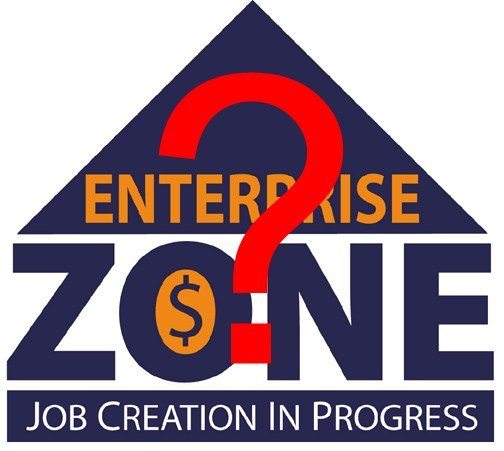

 You have to feel a little bad for Texas Gov. Rick Perry. He came all the way to California this week to “poach jobs” and left empty-handed. Maybe Perry hasn’t read the studies that show very few jobs move from California to other states. Or maybe he wasn’t aware that California is on the rebound in a big way, now leading the nation in job creation. At the end of the day, Perry’s trip really was all hat, no cattle.
You have to feel a little bad for Texas Gov. Rick Perry. He came all the way to California this week to “poach jobs” and left empty-handed. Maybe Perry hasn’t read the studies that show very few jobs move from California to other states. Or maybe he wasn’t aware that California is on the rebound in a big way, now leading the nation in job creation. At the end of the day, Perry’s trip really was all hat, no cattle.
Over the last week, there’s been a lot of silly media coverage comparing Texas to California. It’s almost like a sports rivalry at this point. Perry says his low-regulation, low-government service, low-wage economic model is the way to go.
As a native Texan, I know better. I still remember going to the beach in Galveston and having to use turpentine to clean my feet before I left because of the oil.
» Read more about: State’s Enterprise Zones Make Rick Perry Look Smart »


The GOP’s inviolate article of faith is that big government is inherently evil. The GOP has been stupendously successful through much of the last century in tagging any Democrat that champions increased regulatory powers, higher taxes on corporations and the rich, greater public spending on health, education and job programs, and bolstering entitlement programs as a reckless, tax-and-spend enemy of private enterprise. Franklin Roosevelt was no exception to the maligning. Often forgotten in the historic lionizing of FDR for standing government on its head to blunt the hard edge of the Great Depression, was that the GOP (with some help from a small but pesky clique of Democratic congressional conservatives, big industrialists and conservative newspaper moguls) fought FDR tooth and nail on every one of his reform proposals from Social Security to tighter industry regulation. Also forgotten, is that FDR had to tweak, compromise and water down his proposals, even the successful ones, to get passage.
» Read more about: Can Obama Do an FDR in His Second Term? »
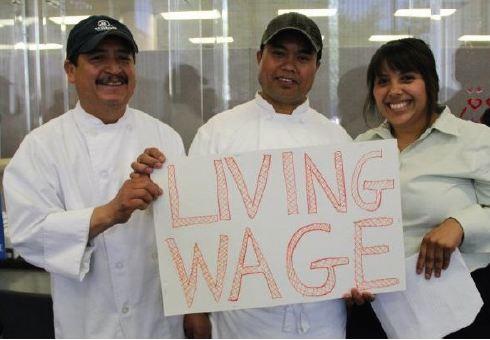
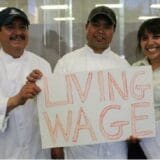
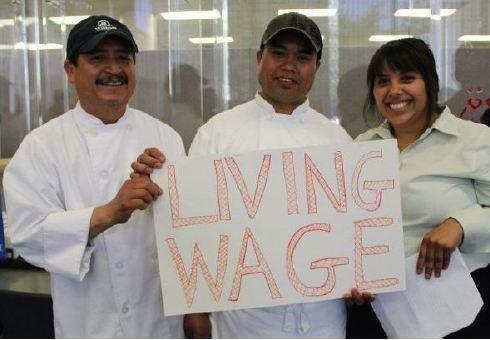 (The following appeal comes from the Long Beach Coalition for Good Jobs and Healthy Communities.)
(The following appeal comes from the Long Beach Coalition for Good Jobs and Healthy Communities.)
On November 6, Long Beach voters overwhelmingly approved a minimum wage for hotel workers in their city. The law guarantees that these workers will be paid about $2,000 a month for full-time work and receive five paid sick days a year. (Fact sheet.)
These modest provisions would help hotel workers and their families, while boosting the economy for everyone in Long Beach. The hotels, many of which are owned by wealthy out-of-state corporations, have been thriving and could easily afford to pay the minimum wage while maintaining healthy profits. However, they are doing everything in their power to thwart the will of the voters and punish their own employees – putting a few extra dollars of profit ahead of the interests of Long Beach residents and businesses,
» Read more about: Tell Long Beach’s City Council to Enforce the Will of Voters »


Activists, organizers and elected officials across the United States have come together to urge President Barack Obama to award posthumously the Presidential Medal of Freedom to the legendary organizer, Fred Ross Sr. The first to organize people through house meetings, a mentor to both Cesar Chavez and Dolores Huerta, and a pioneer in Latino voter outreach since 1949 when he helped elect Ed Roybal as Los Angeles’s first Latino council member, Ross’ influence on social change movements remains strong two decades after his death in 1992. If there were a Mount Rushmore for community organizers, Ross’s angular face would be on it. Here is a brief summary of Ross’s remarkable legacy, along with instructions on how to get your message of support to President Obama in time for the February 28 deadline.
Like all activists familiar with his work, I had a reverence for Fred Ross, Sr. before I knew the full record of his accomplishments.


“Fix the Debt,” the CEO-led campaign promoting fear and what some have called near-hysteria over the national debt, has met its grassroots nemesis: “Flip the Debt.” While speaking at a Fix the Debt conference on Monday, Honeywell International Inc. CEO David Cote was interrupted several times by Flip the Debt protesters over tax loopholes that allow companies like Honeywell and General Electric to pay far less taxes than ordinary Americans.
Three minutes into Cote’s keynote address, the first heckler trumpeted:
“Fix the Debt claims to seek bipartisan solutions to reduce the deficit, but Fix the Debt is nothing more than a CEO lobby whose real objective is huge corporate tax breaks and drastic cuts in Social Security, Medicare and Medicaid. David Cote and his CEO friends receive a lot from government: In 2011, Honeywell received $725 million in government deals, making it the 35th largest federal contractor.
» Read more about: “Fix the Debt” Meets Its Match: “Flip the Debt” »


On January 23 of this year, Scabby the Rat, a 16 foot tall rodent first inflated in 1990 by protesting Chicago bricklayers, had a scare. Sean McGarvey (@BCTDPrez), president of the AFL-CIO Building and Construction Trades Department, took to Twitter following a meeting with presidents and state councils to address his 488 followers: “Issued a call to retire the inflatable rat. It does not reflect our new value proposition.” Jill Cashen, Communications Director for United Food & Commercial Workers (UFCW) responded favorably @BCTDPrez and to her 387 followers, notching up the rhetoric to #deflatetherat.
On January 24, @ScabbyTheRat (7,737 followers) who reports on “anti-labor activity no matter where it happens” had a day in the sun, albeit it a busy one. Catapulted by Mike Elk (@MikeElk, 10,278 followers) — perhaps labor’s most dedicated and voracious Tweeter — and his story from In These Times, @ScabbyTheRat tweeted 28 times,


We are workers who move Walmart merchandise at a private warehouse in Chino, California. Just a couple of weeks ago the state of California ordered the warehouse owner to repay us more than $1 million in stolen wages. The California Labor Commissioner determined the warehouse operator, Quetico LLC, had shorted our paychecks and those of more than 800 workers.
Para leer en Español haz cliq aquí.
We are so happy that justice has been served, but we continue to risk our jobs just because we blew the whistle. The company is denying it did anything wrong and appealing the state’s ruling. In the meantime we are worried about retaliation and losing our jobs. We don’t know if we will be fired. Walmart has done nothing.
You can help us. Sign our petition to Walmart.
» Read more about: Petition: Walmart-Contract Workers Fear Retaliation »
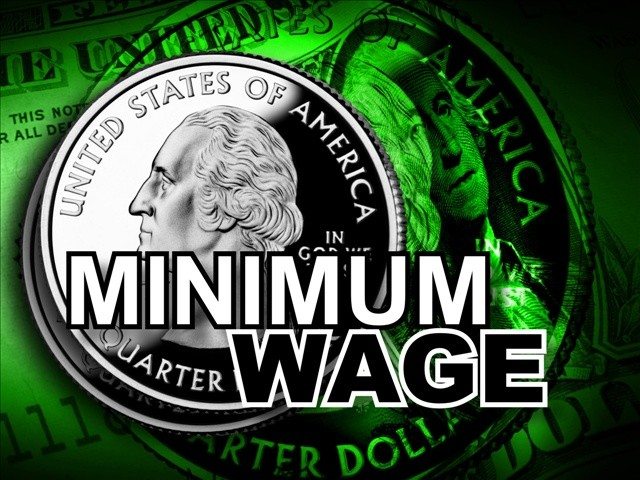
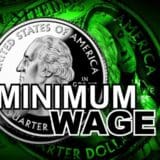
My friend pastors a vibrant congregation in the Mid-City area of Los Angeles. Her people reflect the neighborhood and the church worships in both Spanish and English. In a conversation this week I asked her how her folks were doing. Her voice dropped, and she shook her head. “There are no jobs,” she said, “and the ones who work can only get part-time hours.” With dismay, she said, “I don’t know how they are making it.”
I don’t either. At one extreme, high-end properties – homes that sell for several millions of dollars – had a banner year in 2012. Sales of super-expensive automobiles reached record levels. Exotic vacation destinations are packed. The number of jobs in Los Angeles County has reached about 4.3 million, almost the number we had before the Great Recession began five years ago, although there are now also more people looking for work than then.
» Read more about: Of Biblical Proportions: Inequality and Poverty Wages »


Most of us know how badly Walmart treats its employees. Yet whenever the remedy of paying a living wage is proposed, opponents always argue that the cost to Walmart shoppers is too high, and that low-income consumers will be hurt the most.[1]The question is: What will a living wage for Walmart workers cost Walmart shoppers?
First, some background. A 2005 study found that Walmart jobs in metropolitan areas pay less and are less likely to offer benefits. Other researchers demonstrated that Walmart workers earn on average 31 percent less than workers in large retail stores as a whole and about 60 percent of the wages of unionized workers. They also found that an astounding 75 percent of full-time workers with at least one year on the job made below $10 an hour and less than half were enrolled in Walmart’s cost-prohibitive health plan.
Moreover,
» Read more about: Walmart: The Low Cost of High Road Retailers »
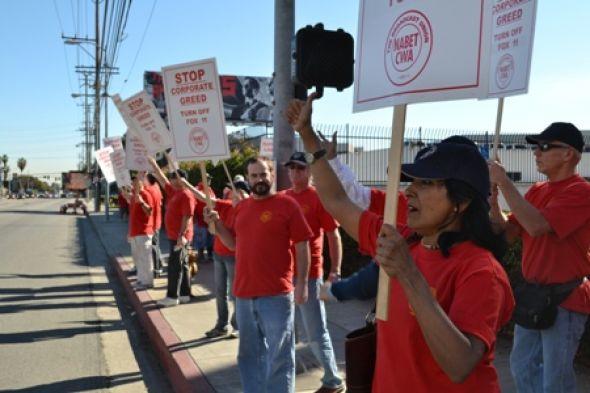
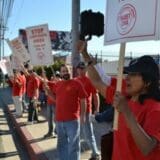
Since May of 2011, the producers, editors, photographers and other NABET-CWA* workers at KTTV and KCOP-TV in Los Angeles have been trying to negotiate a fair and reasonable contract with the owner of the stations, Fox Television – but the company has something else in mind.
Fox wants to end the standard 40-hour work week by putting NABET members on a seven-and-a-half-hour work day, and the management also wants to eliminate the paid meal period — which has been an industry standard for decades. Cutting back employees to a 37.5 hour work week effectively amounts to a 6.25 percent wage cut.
It doesn’t end there.
Fox also wants to cut vacation days, sick days, holidays and meal penalties. Premium pay for daily employees would be drastically reduced. Put it all together and many employees would see their wages and benefits reduced by 10 to 20 percent!
» Read more about: Fox: Gouge KTTV and KCOP Workers of Hours and Benefits »


Well… my 68 year old brain has done it again. It’s bad enough going into a room and wondering why you’re in there, but leaving your wallet on top of your car at the gas station, and then driving off, has much more serious consequences. It’s being pre-occupied with multi-tasking in this jet-set age that has overloaded the wiring upstairs. The New York Times had an article that creative acts need a singular focus; you can’t answer the phone, eat lunch, or text while playing music or painting. So I don’t know where my mind was after I set the billfold on the roof, pumped petrol, and left.
Certainly the miracle woman who was driving by later was in her present mind. That afternoon I was in a complete panic, going back to the gas station, looking everywhere, asking the attendant if anything had been turned in…
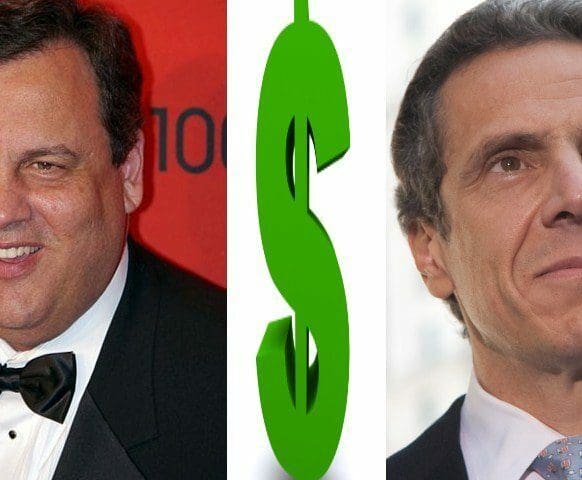

 Two potential candidates for president in 2016, New Jersey Governor Chris Christie and New York Governor Andrew Cuomo, have taken opposing positions on raising the minimum wage in their states. The debate between the two governors draws a sharp distinction between competing economic visions: trickle-down vs. middle-out economics. At the same time, it also shows how limited the current debate is when it comes to dealing with what’s needed to meet the needs of working families and, in doing so, change the direction of economic policy.
Two potential candidates for president in 2016, New Jersey Governor Chris Christie and New York Governor Andrew Cuomo, have taken opposing positions on raising the minimum wage in their states. The debate between the two governors draws a sharp distinction between competing economic visions: trickle-down vs. middle-out economics. At the same time, it also shows how limited the current debate is when it comes to dealing with what’s needed to meet the needs of working families and, in doing so, change the direction of economic policy.
In late January, New Jersey Governor Chris Christie vetoed a small increase in the minimum wage, from the current federal minimum of $7.25 an hour to $8.50 an hour. Christie said that raising the minimum wage would “jeopardize New Jersey’s economic progress.” Christie based his opposition on concerns about small business, although two out of three low-wage workers are employed by corporations with over 100 employees.


 One of the most exciting and inspirational aspects of coalition building is seeing the success and victories that people get when they come together for the common good of their community. The time and effort that can go into the work is nothing compared to the feeling of victory once the campaign has been won, and the people and community feel the victory themselves.
One of the most exciting and inspirational aspects of coalition building is seeing the success and victories that people get when they come together for the common good of their community. The time and effort that can go into the work is nothing compared to the feeling of victory once the campaign has been won, and the people and community feel the victory themselves.
Unfortunately, groups that have never worked together are often times unwilling to do so because of longstanding suspicions or differences, so building coalitions around economic enhancement projects, political campaigns, religious events and community change is a very hard thing to do. However if you apply some strategy rules to the process you can build a great coalition.
First, you have to believe in what you are trying to build together – and also believe that it can be built. You can’t waste time fighting a cause that is not winnable.
» Read more about: The Art of Coalitions: Building Teams of Rivals, Not Enemies »


More than 30,000 Los Angeles County homes still face foreclosure threats or have already been seized by banks as their owners struggle to cope with more than $14 billion in mortgage debt, a new analysis by Good Jobs LA reveals. These homes include:
The recent news reports about an “easing” foreclosure crisis bring no comfort to the more than 30,000 L.A. County families facing underwater mortgages held by the same banking giants that did so much to crash our economy nearly five years ago.
And the same big banks that led us into crisis continue to top the foreclosure lists,
» Read more about: Foreclosing Time: L.A. County’s Mortgage Crisis Continues »
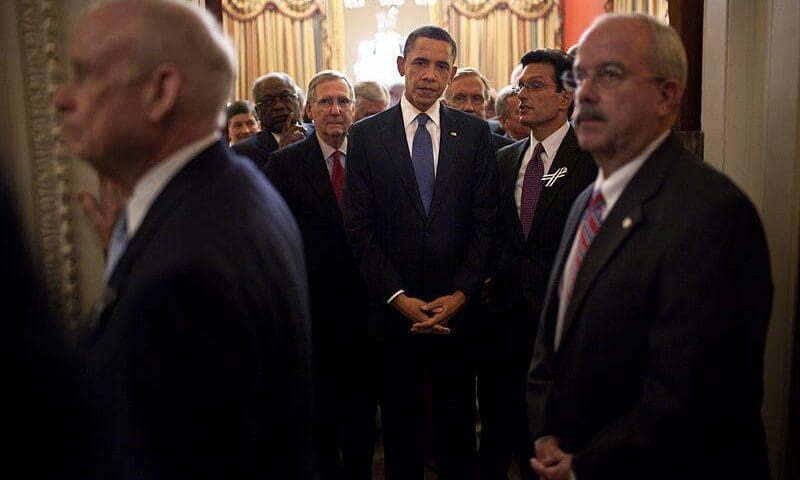
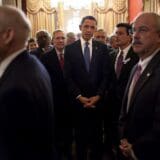
If you’re sitting in the well of the House when a president gives a State of the Union address (as I’ve had the privilege of doing five times), the hardest part is on the knees. You’re required to stand and applaud every applause line, which means, if you’re in the cabinet or an elected official of the president’s party, an extraordinary amount of standing and sitting.
But for a president himself, the State of the Union provides a unique opportunity to focus the entire nation’s attention on the central issue you want the nation to help you take action on.
President Obama has been focusing his (and therefore America’s) attention on immigration, guns, and the environment. All are important. But in my view none of these should be the central theme of his address Tuesday evening.
His focus should be on the joblessness, falling real wages, economic insecurity, and widening inequality that continue to dog the nation.


Several years ago, I spent time in a rural area of Ghana, a few miles outside the bustling city of Kumasi. As part of a public health research team, I was studying childhood diseases that come from lack of clean water. My goal was to understand how parents made decisions about how to treat their children’s water-related illnesses. Yet while treatment is critical, I was struck most by our relative powerlessness to prevent these diseases from happening in the first place.
More people die from unsafe water than from all forms of violence, including war, according to U.N. Secretary-General Ban Ki-moon. Across the globe from Ghana, here in the United States, we are fortunate to have some of the best public water systems in the world. In the U.S., public water has a long history of prompting economic development and advancing leaps in public health and safety.
Unfortunately our public water systems are under threat.